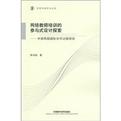网络教师培训的参与式设计探索 包销
出版时间:2011-12-01 出版社:外语教学与研究出版社 作者:陈则航 著 页数:390
内容概要
北京师范大学的外国语言文学学科在全国同行中位居前列。学院设有英文系、日文系、俄文系、公共外语教学部等教学单位,设有外国语言学研究所、外语教育与教师教育研究所、外国文学研究所、外语测试与评价研究所、比较文学与翻译所、日语教学研究所、翻译教学与研究中心等学术研究机构,另有一个校级科研机构--北京师范大学功能语言学研究中心。目前设有英语语言文学和俄语语言文学两个二级学科博士点、四个硕士点以及外国语言文学博士后科研流动站。北京师范大学外国语言文学学院继承优秀的人文传统,发扬严谨求实的学风,与时俱进,开拓创新,以教学推动科研,以科研促进教学,教学科研双轨并行;每年除了派出师生出国访学进修或参加国内外学术会议外,还定期独立或联合召开各类学术研讨会;近年来获得各级各类科研项目和奖励数十项,在国内外重要学术刊物和出版社发表了大量研究著述。
书籍目录
AbstractAcknowledgementsList of TablesList of FiguresKey AcronymsChapter 1 Introduction1.1 ABOUT THE RESEARCH1.2 DISTANCE EDUCATION1.2.1 A brief history of distance education globally1.2.2 History of distance education in China1.2.3 Teachers and teacher training in distance education1.3 THE STUDY1.3.1 The context of the study1.3.2 The purpose of the study1.3.3 The significance of the study1.4 0VERVIEW OF THE BOOKChapter 2 Literature Review2.1 INTRODUCTION2.2 PARTICIPATORY DESIGN2.2.1 Why PD?2.2.2 Challenges for PD2.2.3 Implementation of PD2.2.3. 1 PD in software design2.2.3.2 PD in education2.2.3.3 PD in e-learning2.2.4 Influential factors of PD2.2.4.1 Collaboration and cooperation in team work2.2.4.2 Types of teams and team roles2.2.4.3 Team work strategies2.2.4.4 Culture and team work2.2.4.5 Intercultural communication competence and team work2.2.5 Summary2.3 E-TUTOR TRAINING2.3.1 e-Tutors as teachers2.3.1.1 Theory basis for teacher education2.3.1.2 Models in teacher education2.3.1.3 Theories and models for teacher education in China2.3. I .4 Distance teacher education2.3.2 e-Tutors and e-learning2.3.2. 1 e-Learning2.3.2.2 e-Learning design: process and pedagogy2.3.2.3 e-Learning in teacher education2.3.3 e-Tutor training2.3.3. 1 Roles and competences of e-tutors2.3.3.2 e- Tutor training models and pedagogies2.3.4 Culture and pedagogy2.3.4.1 Authority and autonomy2.3.4.2 Harmony and criticality2.3.4.3 Collectivism and individualism2.4 THE THEORETICAL FRAMEWORK2.5 SUMMARYChapter 3 Research MethodologyChapter 4 Understanding the ContextChapter 5 The PD Process and the Influential FactorsChapter 6 e-Tutor Training Pedagogy from PD ProcessChapter 7 ConclusionsReferences
章节摘录
Step 2 (Orientation) Ten tutors who were identified by Chub ture users of the e-educator training module were recruited and given a 4-week online orientation from Feb 17th to March 15th 2006. During the orientation period, the participants took on the role of learners in the MA e-ELT course and worked on extracts from this. They also experienced the use of a discussion forum and bulletin board. During this process, they were expected to identify problems an e-learner would encounter and the kinds of support they as learners would need as well as areas of knowledge required by e-tutors. Step 3 (F2F design workshop) A face-to-face design workshop was conducted between March 17th and20th 2006 in Beijing. The ten tutors worked collaboratively together with seven academics and two technologists from UKU for four days to develop some materials for this module. The design team was divided into five group saccording to the themes of the module, namely empathy, cognitive aspects, reflection and autonomy, community building and assessment. Each theme group worked in their own ways to develop the e-learning materials but was expected to design at least one trigger activity using rapid prototyping approach during the workshop. A trigger activity was defined as "an activity that has been designed to illuminate the experience of the online learner and serves to raiseissues in relation to the support needed and the role of the tutor and learner in this" (e China-UK March workshop program me document, 2006). From time to time, the technologists were invited by the theme groups to discuss desig nideas. Three Learning Sets were set up to reflect upon the development process and their experience. One consisted only of UKU members, the other two each consisted of five tutors, one from each theme group. ……
图书封面
评论、评分、阅读与下载
